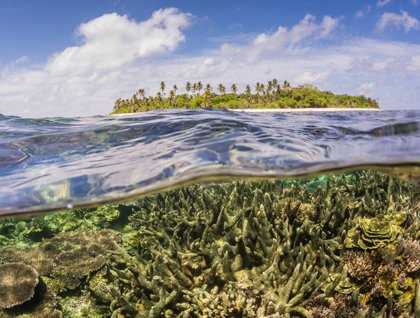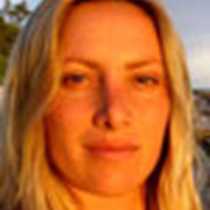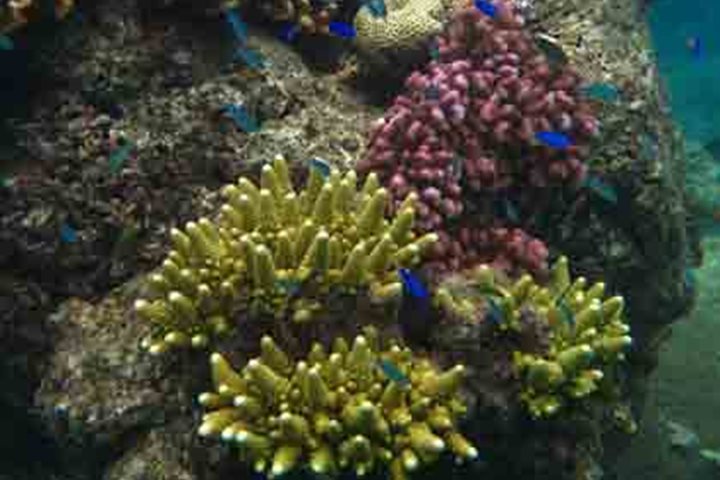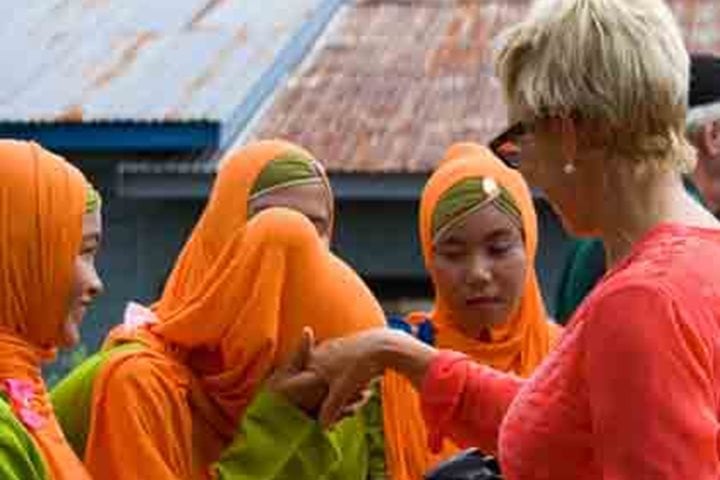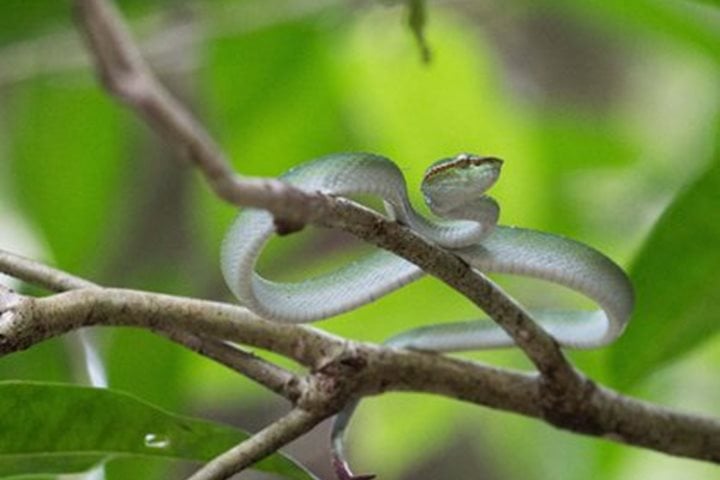Borneo is well known for its ancient equatorial lush forests, primates and unique terrestrial fauna, but its waters are also home to an incredibly rich diversity of marine plants and animals that cannot be found anywhere else in the world. Borneo, the third largest island in the world, is part of the Coral Triangle, a marine area that includes the waters of Indonesia, Malaysia, the Philippines, Papua New Guinea, Timor Leste, and Solomon Islands. Named for its staggering number of corals (nearly 600 different species of reef-building corals alone, the highest coral diversity in the world), the coral triangle nurtures six of the world’s seven marine turtle species and more than 2,000 species of reef fish. Over 120 million people live in the Coral Triangle and rely on its coral reefs for food, income and protection from storms. Today we had the first opportunity to explore this important and fragile ecosystem, taking the plunge in the refreshing and calm waters surrounding Jangkulun Island. This picturesque coral cay from the Badas Island is located at the group of Tudjuh Archipelago in the South China Sea. After a special time meeting the orangutans in the hot and humid tropical forest, many welcome the chance to cool off and to snorkel and swim to observe and discover more about the corals and fish species of this little tropical island. Clown fish and anemones, parrot, angel and butterfly fishes, feather stars, blue starfish, black tip reef sharks, soft and hard corals with their massive and branching forms decorated and ornamented the shallow reefs. Back on board, after a delicious lunch, naturalist Cristiana Damiano presented an informative lecture about the interesting life of naturalist Alfred Wallace, considered the 19th century's leading expert on the geographical distribution of animal species and called “father of biogeography.” We also learned about his important contribution to Darwin’s Theory of Evolution. Naturalist and crocodile expert Adam Britton spoke about the “21st dinosaurs,” the crocodilians. We had the opportunity to learn about the biology, ecology and life of these magnificent large aquatic reptiles. Then it was time for the National Geographic Orion to set sail again, heading to the fascinating Borneo mainland where new adventures with orangutans and a cultural experience in Kuching awaited us.
Call +1.800.397.3348 or contact your travel advisor

